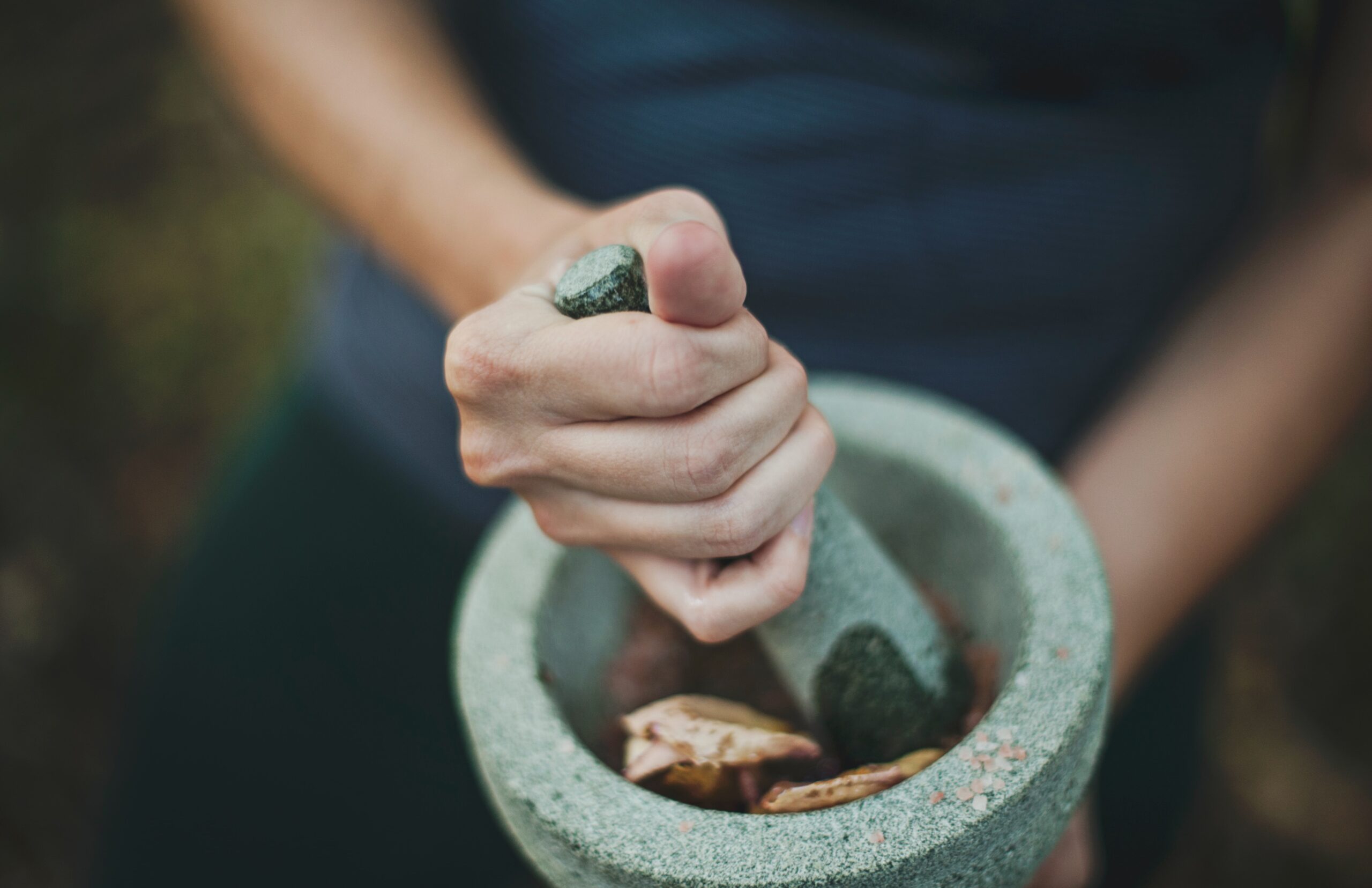Did you know that you can find treat upper GI symptoms like GERD, Gastritis, and Acid Reflux naturally? Keep reading to learn how.
These conditions and their associated symptoms can be debilitating and really affect your quality of life.
Unfortunately, many conventional doctors only prescribing medication like Proton Pump Inhibitors (PPIs) and other acid blockers to relieve your symptoms.
And while these may be effective means to relieve symptoms, they’re not going to get to the root of why you’re having these painful upper GI issues in the first place.
GERD, Gastritis, and Acid Reflux are often just symptoms of something else that has gone wrong in the gut or elsewhere in the body.
By taking a holistic approach to treating these conditions, we’re better able to help you start feeling better soon and to keep you feeling great in the long run.
If you’re suffering from GERD, Gastritis, or Acid Reflux and are interested in learning to treat them naturally, you’re in the right place. This post is going to outline everything you need to know to finally start finding relief.
In this post you’ll find:
- The specifics on each condition and their unique symptoms
- The best, most reliable ways to get diagnosed
- Common causes of these upper GI issues
- What often makes symptoms worse
- How to treat these conditions naturally
And if you need help diving into your gut symptoms and getting to the root of your gastritis, I’m now accepting one-on-one clients, and I’d love to team up with you! Just fill out this quick application and if it looks like you’re a good fit for my practice I’ll be in touch to schedule a free Discovery Call to get started.

What are Upper GI Conditions?
Usually, when we think of gastrointestinal (GI) conditions we think of things involving our intestines, like SIBO or IBS.
But, upper GI conditions – those involving the part of the gut from the esophagus to the stomach – are just as common, and the symptoms can be just as debilitating.
GERD, Acid Reflux, and Gastritis all involve this upper GI region of the gut. And although they’re similar in the location that they affect, they do all have their differences.
What is GERD?
GERD, or Gastroesophageal Reflux Disease, is a condition that affects the lower esophageal sphincter. This is the ring of muscle that is positioned between the esophagus and the stomach.
When this sphincter is closed and working properly, it prevents acid and other stomach contents from traveling back up your esophagus from the stomach.
But, when it’s not working properly, as is the case in GERD, you can experience symptoms like heartburn and indigestion from this buildup of acid in the esophagus.
The most common symptoms of GERD are:
- Burning in the chest (heartburn)
- Chest pain
- Difficulty swallowing
- Feeling like there’s a lump in your throat
- Regurgitating food
- Sore throat
GERD is often at its worst first thing in the morning when the stomach is empty and there is excess stomach acid with nothing to digest.
You can also experience more symptoms of GERD when you’re lying down since this position makes it easier for your stomach acid to travel up your esophagus.
What is Gastritis?
Gastritis is a condition that is characterized by the inflammation of the lining of your stomach.
The stomach lining is very sensitive, and when it becomes inflamed it can result in a host of symptoms and GI issues.
Some common symptoms of Gastritis are:
- Nausea
- Bloating
- Diarrhea
- Stomach pain
- Indigestion
- Loss of appetite
- Getting full very quickly
- Intolerance of fatty foods
When the lining of your stomach is irritated, eating anything can become difficult. Unintentional weight loss is also another common sign of Gastritis and is something to look out for if you think you may have this condition.
What is Acid Reflux?
Acid Reflux is related to both GERD and Gastritis and can take many forms.
This condition is characterized by stomach acid or bile that flows into the esophagus and irritates the lining of the throat.
Common symptoms of Acid Reflux are:
- Bloating
- Burping
- Feeling like there’s food stuck in your throat
- Nausea
- Weight loss
Acid Reflux is often caused by GERD, but not always. Gastritis can also lead to Acid Reflux, but again, not in all cases. And there is an alternate version of Acid Reflux, called Laryngopharyngeal Reflux (LPR).
In LPR, the stomach acid travels up the esophagus and ends up in your throat, or voice box, and irritates your vocal cords.
Specific symptoms of LPR include:
- Dry cough
- Hoarseness
- Sore throat
Both Acid Reflux and LPR are commonly caused by another GI issue. Many times Gastritis or GERD can be behind these conditions, but lower GI conditions like SIBO or another imbalance of gut bacteria can also influence whether or not you’ll have Acid Reflux.

How to Get Diagnosed
Getting diagnosed with an upper GI condition can oftentimes be a diagnosis of exclusion. However, it can be helpful to get an official diagnosis from a medical professional before attempting to treat GERD, Gastritis, or Acid Reflux naturally.
This means that your practitioner will either be able to diagnose you just based on your symptoms or because your test results for other conditions came back negative and these are the only things left that make sense.
The most common diagnostic test for these conditions is an Upper Endoscopy and Biopsy.
This procedure uses a camera on the end of a long tube to see inside your entire upper GI tract. What’s great about this procedure is that you’ll get a picture of everything starting at your throat and ending in your stomach.
That way you’ll be able to tell where the inflammation is occurring – either in your throat for a diagnosis of GERD or LPR, or in your stomach with Gastritis, and sometimes both.
There are other ways to diagnose these conditions, including a pH test of your stomach, or an X-ray of your upper digestive system.
But in many cases, these conditions can be diagnosed by symptoms alone.

Getting to the Root Cause
If you want to get to the root of why you are experiencing these upper GI conditions in the first place, more functional testing is often required.
The best way to figure out if something like a gut infection or lack of digestive enzymes is causing your GERD, Gastritis, or Acid Reflux is to complete a functional stool test.
My favorite functional stool test, and the one that I use with one-on-one clients, is the GI-MAP. This is the test that I use in my practice – apply for a free 30-minute discovery call if you want to chat about how this test could help get to your root cause.
This stool test is way more accurate than a stool test you’d get at your conventional GI doctor. So even if you had a test come back clean in the past, getting this one (or a similar one) done could be beneficial.

Common Causes of Upper GI Conditions
Getting a diagnosis of GERD, Gastritis, or Acid Reflux can seem like an answer to prayer. And it definitely is! Finally having a name for the horrible set of symptoms you’ve been experiencing is one step closer to finding relief.
But, unfortunately, most of the time these conditions aren’t actually at the root of what’s wrong. They’re merely byproducts of another condition or set of circumstances that is enabling these symptoms to take place.
Understanding what’s causing you to have these symptoms in the first place will make treating these conditions naturally so much more effective.
Here are some of the most common causes of these upper GI conditions.
Stomach Acid Imbalance
Producing too little stomach acid can definitely cause you to experience any host of upper GI symptoms.
Stomach acid performs so many important roles in the digestion process, that if it’s out of balance our entire gut is going to be affected.
This highly acidic solution produced by the cells lining your stomach is your first line of defense against any pathogenic invaders that come into your system via your mouth.
Stomach acid is also a critical beginning step in the digestion process. And when we’re not producing enough, our entire digestive system is going to be affected.
Contrary to popular belief, acid reflux and GERD are caused by too little, not too much, stomach acid.
This makes it even more confusing as to why conventional medicine treats these conditions with acid-lowering drugs. The drugs might make your symptoms better (because there IS too much acid in your esophagus), but they’re certainly not helping you treat the root cause.
Even though low stomach acid can be a cause, these conditions often cannot be treated by supplementing with hydrochloric acid (the supplemental version of stomach acid) alone.
This is because the tissue that is affected, whether it’s the esophagus in GERD or the stomach in Gastritis, is very sensitive and likely already inflamed and damaged.
And, unfortunately, low stomach acid isn’t a true root cause. There is likely something else going on that is resulting in an imbalance of stomach acid.
H Pylori Infection
One root cause that can cause these upper GI conditions, as well as low stomach acid, is an H pylori infection.
GERD, Gastritis, and Acid Reflux are all highly related to an overgrowth of H pylori in the stomach.
H pylori is a bacterial infection that occurs in your stomach. When this bacteria is present, it burrows into the lining of your stomach creating inflammation and eventually ulcers.
And while this bacteria is busy hanging out in your stomach lining, it actually suppresses stomach acid as a method of survival.
The ironic thing about treating these upper GI conditions with acid-suppressing medication is that H pylori can only survive in a stomach where the acidity level has decreased, as is what happens when stomach acid is suppressed.
So essentially, by lowering your stomach acid, you’re making the environment more hospitable for the infection that is likely at the root of your symptoms in the first place.
With that being said, sometimes it is necessary to lower your stomach acid to provide immediate symptom relief. It just shouldn’t be relied on as a long-term solution for these conditions.
A Stressful Lifestyle
I know, we never like to think of stress as a root cause of our digestive symptoms, especially the chronic ones. But we can’t escape the fact that our gut and our brain are intimately connected.
And beyond that, increases in the stress hormone cortisol that come along with living a lifestyle of high stress can definitely impact the gut in negative ways.
Several studies have found that if you have anxiety you’re at a greater risk of developing GERD and that it increases symptoms associated with that condition.
It’s been shown that anxiety and other mental distress impact the motility of the esophageal sphincter that is responsible for keeping your stomach acid where it belongs.
If you’re stressed, your likely to not have a well-functioning esophageal sphincter, and are more susceptible to GERD and Acid Reflux.
Stress can also be a cause of sudden inflammation of the stomach lining, or acute gastritis.
If it seems like your upper GI symptoms tend to flare up after or during a stressful event, it’s probably not a coincidence.
Working to reduce your overall stress burden, and learning to better manage the stress you can’t remove can really help decrease your symptoms of GERD, Gastritis, and Acid Reflux.
SIBO
SIBO, an overgrowth of bacteria in the small intestine, can actually be a root cause of GERD, Gastritis, and Acid Reflux.
There are a few primary ways in which SIBO can contribute to these conditions.
First, the gas produced by the overgrown bacteria can cause your digestive tract to expand – what we know as bloating.
This bloating then can then cause stomach acid to push up against the lower esophageal sphincter and leak through into the esophagus, causing Acid Reflux and GERD.
Also, SIBO often leads to an inability of the body to synthesize certain digestive enzymes. This reduces the small intestine’s ability to break down the food you eat. Your digestive system then has to compensate and your entire digestive processes just slow down.
And when food isn’t moving as fast through your gut, it starts to build up and puts pressure on the stomach, increasing your likelihood to develop GERD and reflux.
SIBO is also highly associated with a decrease in stomach acid. Whether it’s a cause or a result of SIBO, we’re not entirely sure. But when stomach acid is lowered, you’re more likely to develop H pylori and to have symptoms of GERD and Acid Refulx.
SIBO and conditions like GERD, Gastritis, and Acid Reflux can, unfortunately, ignite a vicious cycle. If you have one of them, the other is likely to accompany it.
But this doesn’t mean that all hope is lost for successful treatment! There are many treatment options, especially natural ones, for both SIBO and these upper GI conditions.

What Can Make Symptoms Worse
If you’re suffering from GERD, Gastritis, or Acid Reflux I’m sure you’re familiar with some of the things that can make your symptoms worse.
While these conditions are not caused by the foods that you eat, eating certain things can definitely cause a flare in symptoms.
And avoiding those trigger foods can help your sensitive stomach and esophagus lining heal and lessen your symptoms in the long run.
Here is a short list of common trigger foods that can make symptoms of these upper GI conditions worse:
- Acidic foods (tomatoes, apple cider vinegar, citrus)
- Fatty and oily foods (fatty meats, fried foods)
- Chocolate
- Coffee
- Spicy foods
- Carbonated beverages
Supplements that include HCL (hydrochloric acid) should also be avoided while you’re dealing with these conditions.
Although your stomach acid is likely low if you have GERD, Gastritis, or Acid Reflux, your tissue is also inflamed and very sensitive. Adding in HCL supplements can further irritate and damage this tissue, so it’s not a good idea to start supplementing with HCL until you’re fully healed.

How to Treat These Conditions Naturally
Now that we’ve become experts on GERD, Gastritis, and Acid Reflux and what some of their root causes are, we can look at the best methods to treat these conditions naturally.
Traditionally, a conventional GI doctor will treat (more like manage) these conditions using PPIs or other acid-suppressing medication.
Unfortunately, this does very little to actually treat the root causes of these conditions, and can actually make them worse in the long run.
Thankfully, there are some surefire methods to treat GERD, Gastritis, and Acid Reflux naturally. And not all of them have to do with fancy new supplements.
Diet and lifestyle changes can be very effective at reducing the symptoms and addressing the root cause of these conditions. And then on top of those changes, supplements can help address any imbalances or remaining symptoms.
Treatment with Diet
Dietary interventions for GERD, Gastritis, and Acid Reflux are mainly aimed at reducing symptoms and enabling your upper GI tract to heal and recover.
The most important dietary intervention you can take for improving the symptoms of these conditions is to avoid all foods that worsen your symptoms.
These foods could be ones that I mentioned above, or they could be completely unique to you.
But if you find that your symptoms are made worse by eating a certain food, avoiding it will help tremendously.
Eating meals and foods that are lower in fat can also be helpful in reducing your symptoms. Fat is inflammatory and can exacerbate any inflammation that is already present in your upper GI tract.
Making sure that you’re eating frequently, and not letting your stomach get empty can also be a big help in reducing your symptoms.
An empty stomach still produces stomach acid. But when your stomach and esophagus are inflamed, as is the case with these conditions, that stomach acid has nothing better to do than to irritate that delicate tissue even more.
Keeping food in your stomach provides a buffer against the harsh stomach acid, and helps to prevent further damage and pain associated with your inflamed tissue.
Including plenty of raw fermented and high-fiber foods in your diet is also helpful when dealing with GERD, Gastritis, and Acid Reflux.
Treatment with Lifestyle
Lifestyle adjustments for dealing with these conditions seem simple on paper but are much more difficult to actually implement in your everyday life.
Reducing your stress and being able to better handle those stressful events that do come your way is going to be the best way to manage these conditions.
And trust me, as a Type A control-freak myself, I understand how difficult it can be to shift your mindset away from one of worry and stress to one that is conducive to healing and rest.
But, also as someone who has gone through this transition, I can tell you that this change is possible, but it does require work and effort on your part.
Learning to better manage your stress is not as easy as trying out a new diet or supplement routine. But it can be just as or even more effective in resolving your symptoms and bringing you healing.
It requires constant effort and attention to the areas of your life that cause you stress. You’ll need to re-learn old behaviors and learn to react to these potentially stressful events in a different way.
Treatment with Supplements
There are many herbal supplements that can be used both for symptom management and to treat GERD, Gastritis, and Acid Reflux naturally.
I use all of these supplements as a first line of attack with my one-on-one clients to get them feeling better ASAP while we work on digging into the root of what’s causing those symptoms.
These supplements help to soothe and coat the GI tract. This helps to reduce inflammation and provides a barrier between the harsh stomach acid and the sensitive esophagus and stomach tissue that is behind the pain and discomfort.
If you’re interested in teaming up with me to treat these symptoms, just fill out this quick form and I’ll reach out to schedule a free Discovery Call if you’re a good fit!
Treatments for these conditions will likely be aimed at calming symptoms while addressing the root cause of each condition.
If the root cause of your GERD, Gastritis, or Acid Reflux is an H. pylori infection, mastic gum is a great natural treatment. (Here is the H pylori protocol that I used on myself with success).
But, it’s important to work with someone who can test you for H. pylori before you start treatment. Treating an infection that you don’t actually have will cost you time, money, and likely won’t help your symptoms improve much.
Other natural methods of treating these conditions would include the overall rebalancing of the gut. And the best way to do that is to include a high-quality probiotic in your routine.
Just Thrive makes a great spore-based probiotic that has been shown to help heal leaky gut and rebalance the intestinal flora.
This is the probiotic supplement that I’ve used throughout my years of gut healing, and I highly recommend it! You can get 15% off the Just Thrive Probiotic using the code NinjaJT at checkout!

The Bottom Line on Treating GERD, Gastritis, and Acid Reflux Naturally
The best way to treat GERD, Gastritis, and Acid Reflux naturally are with methods that target the root of why you’re experiencing these conditions in the first place.
Covering up your symptoms with acid-blocking medication, while sometimes necessary to heal, is not a long-term solution.
Identifying what’s causing your upper GI symptoms, and teaming up with a practitioner to treat these conditions naturally is the best way to ensure that you’ll find lasting relief and symptom improvement.
Now you tell me, which of these upper GI conditions do you resonate most with? Have you found a root cause for your symptoms? Share your experience in the comments.




